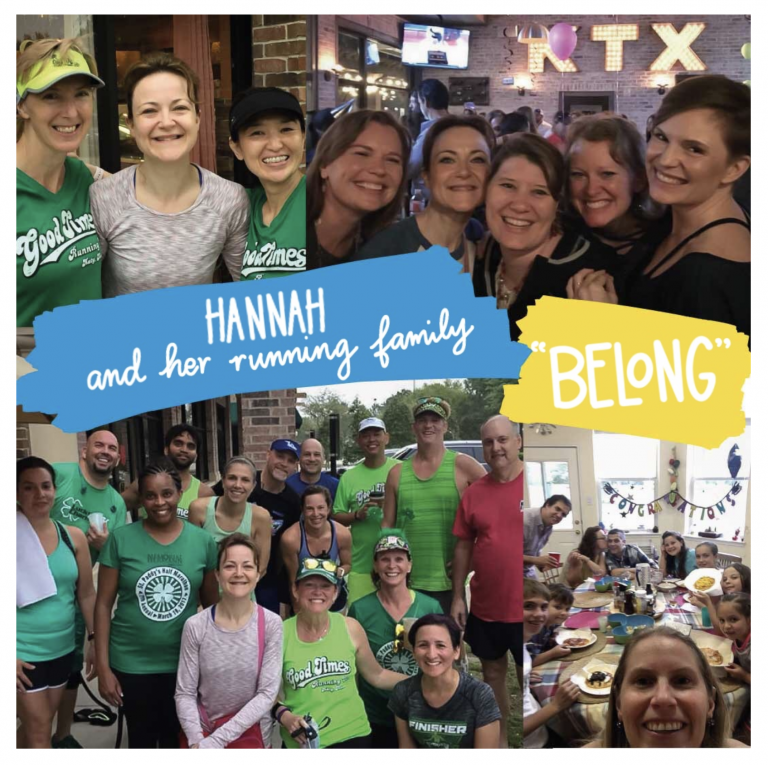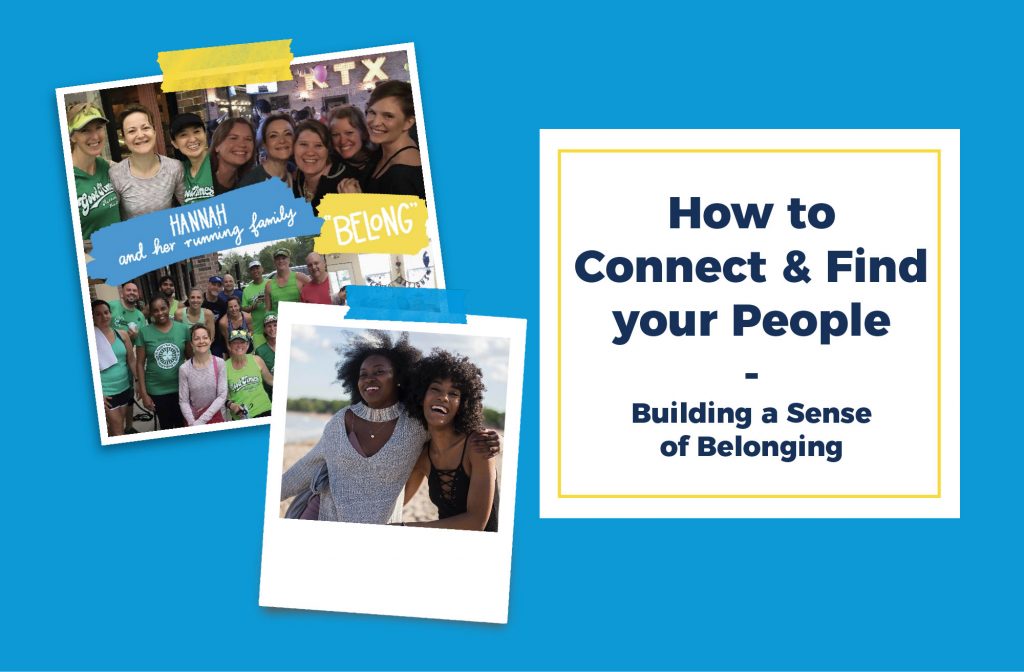“Roots and wings!” She exclaimed, “roots and wings! It’s our job, as mothers, to strengthen their roots so that wherever they are, they can fly.”
So said one of the most wonderful friends I’ve ever made in a lifetime of moving around.We were sitting in her kitchen one day, talking about our kids and our experiences, she from Chile and me from the UK; two foreigners making homes on Texas soil…. And it’s true, the deeper our roots, the more secure we are and (in the words of the great philosopher, Dr Seuss) “oh the places you’ll go!”
In our first article we talked about the vision we have for our work which can best be summed up in this little equation:
Safe + Belong = Thrive
“A place to be and feel safe plus somewhere to belong equals the best chance to thrive”
Where do you "belong"?
Just for a moment, think of all the places you belong and what that means to you. I don’t mean physically, although the ‘where’ is intrinsically part of belonging. For example, I gladly belong in my own ‘safe’ family, with my husband and children, and then there’s my extended family of grandparents and nephews and nieces and even the ‘Greats!’ Yes, I still have two of my grandparents who are great-grandparents to my kids! I also belong in my church; we’re a diverse bunch and there’s room for me there. One of my sweetest ever belongings (is that even a word?) was to my running club in Texas. In a Transatlantic move where nothing felt familiar I looked for my ‘people’’ and, when I found them, they were a gift to me; they accepted me, encouraged me, cheered me on, laughed at my British quirks and shared the best Texan (Chilean/Venezualan/Dutch/Australian) hospitality. We often referred to one another as our running ‘family.’

What does it mean to belong?
When we feel a sense of belonging we feel connected, accepted, included and, hopefully, cherished. It does soul-filling good which strengthens confidence, self-acceptance, self-belief. Belonging is an ever-increasing giving and receiving in relationship of time, shared experiences, adventures, challenges, wisdom, emotion and support. The list is endless.
“Belonging” does not mean you are a belonging. You are not somebody’s possession to be used or traded or devalued. You are not owned by the family or club or place or organisation where you feel you belong, rather to belong means there is something mutually enriching about the relationship. It provides an anchor, a home, a safe space.
In a recent post we listed some of the UNCRC rights associated with belonging
Article 7 says ‘you have the right to a name.’ This means we are recognised as individual and unique … which is another one of our SFAC beliefs; every child is unique and their care should be too but more about that as the year progresses!
Article 9 says ‘you have the right to live with your parent(s) unless it is bad for you. You have the right to live with a family who cares for you.’ Mick’s book is deliberately entitled Children Belong in Families because he believes that every child thrives best in a safe family.
Article 15 says “you have the right to choose your own friends and join or set up groups as long as it isn’t harmful to others.’ What an incredible choice! We each have the right to create, as well as participate in, relationships which do us good.
In his poem; Meditation 17, John Donne said, “no man is an island, entire of itself; every man is a piece of the continent, a part of the main.” The idea that we are better off together than in isolation is exactly why belonging is so important.
Perhaps my journey is a good example of how powerful belonging can be …. And the reason why we believe it’s so important for every child to be given that opportunity.
I grew up in a very stable home, with parents who have been together for nearly 50 years now. I’m the eldest of 4 children and lived in the same house from the year I was four, to the day I left home for university. I would definitely have considered myself to be a ‘home bird!’ and I was secure in who I was and where I came from… essentially, I knew where I belonged.
My adult life has been a completely different story. I got married 21 years ago and in the last 15 years my family and I have moved 11 times. Each of my three children were born in a different city! That’s a lot of moving around. We haven’t just moved house; we’ve moved postcodes, cities, even countries. So much for being a homebird…. But in actual fact everywhere has been home!
If you had told me as a teenager that this would be the pattern of my life, I would have run a million miles in the opposite direction but it has taught me a very valuable lesson and it gives me confidence that our SFAC aspirations for every child to be and feel safe, and belong isn’t an unrealistic
ambition.
The first lesson is that, for our family, our security has come from who we are, wherever we are. As we’ve reflected on our journey, the kids have asked me where I feel most at home… i.e where do I belong? And I’ve explained to them, it’s wherever we are; they are my home. The second lesson is that deep and richly satisfying roots can be put down again…. And again …. And again, if necessary. If we apply this to the lives of the vulnerable children we’re working so hard to support, a disrupted childhood doesn’t have to mean a lifetime of disconnection.
So, how do we give ourselves the best possible chance of belonging?
Looking back, one of the best pieces of advice I was ever given as a young adult, fresh out of leaving home and feeling nomadic, was to treat my current place like home, no matter whether I knew it was going to be 6 months, 6 years or the rest of my life. If you never commit, you never belong…. So I would say live like your current situation is permanent and throw yourself in hook, line and sinker (as we say in the UK)
This takes courage and perhaps it feels like too much of demand right now, or perhaps you feel like you’ve tried and nothing has opened up… or even that you have a string of negative experiences. Whatever your situation, start with the small things. If no-one has invited you for a coffee in your new place of work, perhaps you could start by doing the inviting? You never know what might open up.
If you’re looking to integrate into a new neighbourhood, small acts of kindness can pave the way for fabulous relationships and don’t decide too quickly on the ‘who.’ I’ve found that liberally sowing friendship seeds can cause amazing things in the most unlikely and unexpected places.
Finally, find your people! Do the thing you love to do; is it running? Is it church life? Is it book club? And very quickly, as you share your life, you’ll be establishing relationships which feel like they’ve been a lifetime in the making.
How do we do help a child find a sense of belonging?
And how do we do this for children? As parents, we endeavour to celebrate the unique people that they are, rather than squash them into a family mould or compare them with one another. We care for and provide for them according to their individual needs and abilities, encouraging them to make the most of new experiences and opportunities, supporting them to develop friendships and interests and praising their achievements. When life gets tough, we stand shoulder to shoulder with them to be whatever they need in that moment. All our moving around means we have several places we can call home but wherever we are, as a family, we will always belong to one another.
If this article resonates with you, you can understand why we believe every child will thrive, given the opportunity to feel and be safe, and to belong. Our job is to give those working with vulnerable children the knowledge, skills and strategies to nurture children through this process.
Right now we need your help to make this happen. We're looking for 2000 people to donate £20.20 in 2020. Click here to help get us one step closer to that goal!
This post was written by Hannah Pease, our Communications Manager here at SFAC.
The photo in the image below was taken by Thought Catalog and found on Unsplash.

